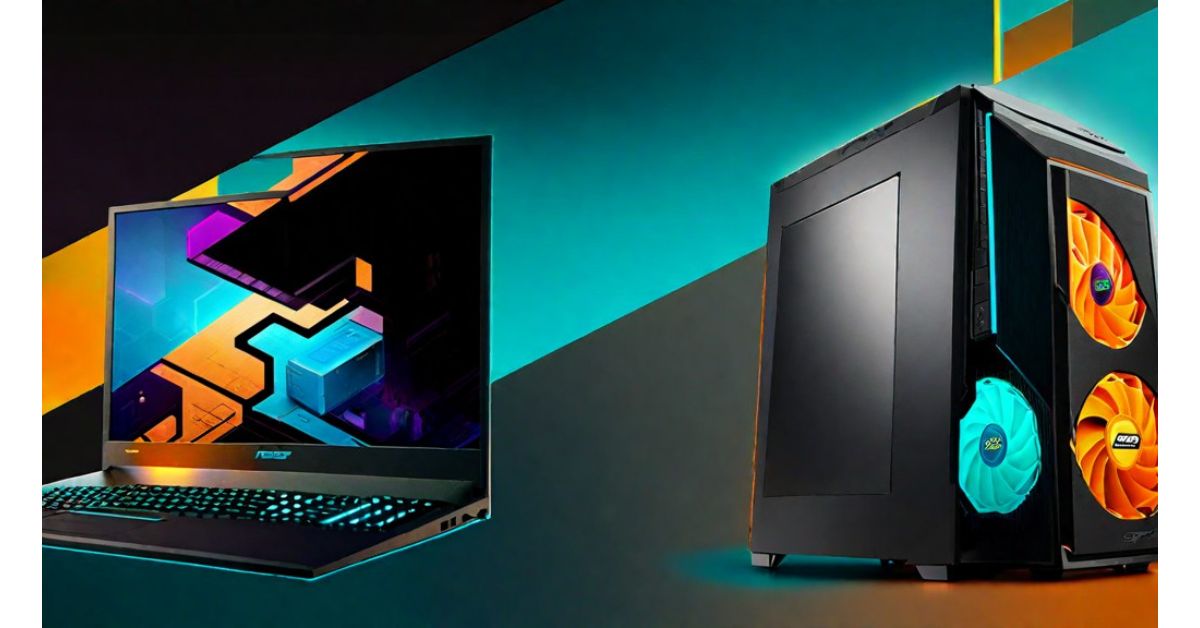In the ever-evolving landscape of gaming technology, the decision between investing in a gaming laptop or a desktop has become more intricate than ever. Gone are the days when laptops lagged behind their desktop counterparts in terms of performance.
Today, gaming laptops have bridged the gap and offer comparable levels of power and capability. However, before you make your choice, it’s essential to delve into various factors that can influence your decision.
Table of Contents
1. Performance: Power at Your Fingertips
The eternal quest for superior gaming performance now spans both laptops and desktops. With significant advancements in technology, gaming laptops have emerged as contenders in the performance arena.
These portable powerhouses now boast processing capabilities and graphical prowess akin to their desktop kin. This leveling of the playing field allows gamers to focus on their preferences and priorities when choosing their gaming platform.
When scrutinizing performance, various elements come into play. Processor speed, RAM capacity, and graphics card capabilities are pivotal components that determine a gaming system’s prowess. While both laptops and desktops offer these features in abundance, it’s crucial to consider the optimization of these components within the confines of each platform.
Desktops tend to have more breathing room for cooling and hardware expansion, potentially allowing for better optimization and longer sustained performance during intense gaming sessions. However, modern gaming laptops have made remarkable strides in cooling technology, ensuring that thermal throttling doesn’t significantly hamper performance.
2. Portability: Gaming On-the-Go or Immersive Desktop Experience
The allure of portability cannot be overstated when it comes to gaming laptops. The ability to take your gaming rig with you wherever you roam is a compelling proposition. Laptops grant the freedom to the game beyond the confines of your gaming den. Whether it’s on a train, during a vacation, or even at a friend’s house, gaming laptops offer unparalleled convenience.
Conversely, desktops remain rooted in their designated spaces. The stationary nature of desktops might seem to limit them, but it’s this very immobility that enables them to house larger cooling solutions, expandable hardware, and ergonomic gaming setups.
A desktop’s fixed setup encourages a dedicated gaming environment that can be tailored for peak comfort and performance, complete with larger monitors, specialized keyboards, and precision gaming mice.
3. Upgrades: Gaming PC Vs Gaming Laptop
One of the critical factors in the longevity of a gaming system is its ability to evolve. In this realm, desktops have a distinct advantage. The expansive interiors of the desktop chassis facilitate the relatively straightforward swapping of components.
Upgrading RAM, adding storage, or even installing a more potent graphics card can be accomplished with ease. This adaptability ensures that a desktop system can remain at the cutting edge of performance, even as gaming demands evolve.
Gaming laptops, while more compact and streamlined, pose a challenge in this aspect. Upgrading laptop hardware requires a level of technical proficiency and specialized tools that might deter the average gamer. While some gaming laptops do offer upgradeable components, the process is inherently more intricate and limited than the plug-and-play simplicity of desktop upgrades.
4. Customization: Crafting Your Gaming Identity
Personalization and aesthetics play a substantial role in the gaming experience. Desktops hold a distinct advantage in this arena. With a multitude of customizable cases, lighting options, and component configurations, desktops become a canvas upon which gamers can paint their unique gaming identity.
Tailoring a desktop to match a preferred theme or color scheme is a straightforward endeavor, allowing gamers to create a visually captivating gaming setup.
Conversely, gaming laptops come with predefined configurations that might limit the extent of customization. While some laptop manufacturers do offer customization options, these tend to be limited in scope and may come with additional costs. The compact form factor of laptops also restricts the extent of cosmetic modifications.
Conclusion
In conclusion, the decision between a gaming laptop and a desktop hinges on a delicate balance of performance, portability, upgradability, and customization. Both platforms have made substantial strides to provide unparalleled gaming experiences, and the choice ultimately depends on your individual preferences and gaming priorities.
Whether you’re a globetrotting gamer or an enthusiast seeking the pinnacle of performance, the modern gaming landscape has something to offer for every player.











Leave a Reply